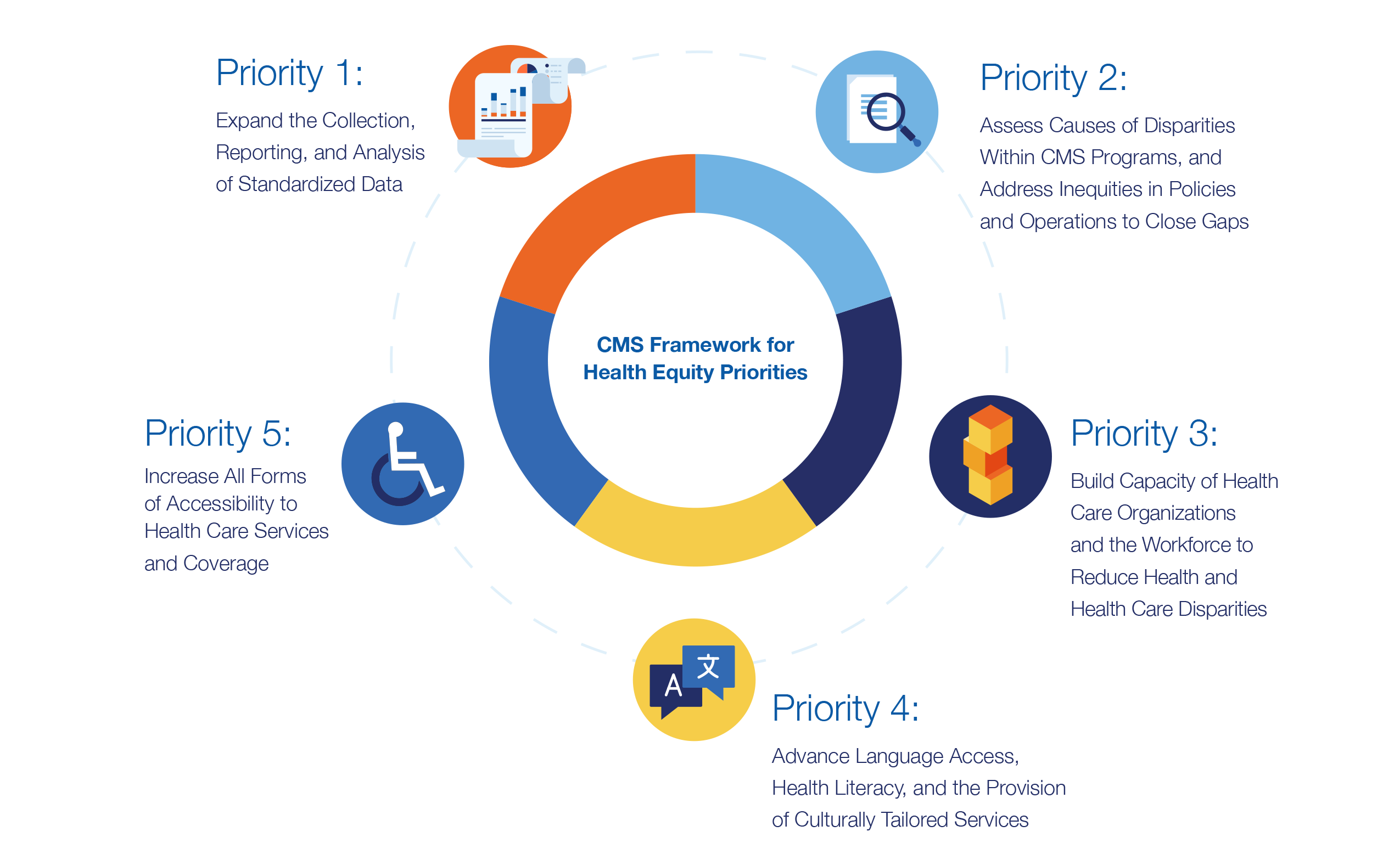There is significant and increasing demand across health and human services to address health inequities and eliminate disparities in service delivery and positive health outcomes. Organizations are asked to provide healthcare in holistic ways that recognize both individual and population-level needs.

Three areas of activity in this space include:
Diversity, Equity, and Inclusion (DEI) work to address inequities within organizations
Equitable access to care and service delivery to improve outcomes and eliminate health disparities
Community wellness and population health outcome improvement
Recent changes in federal and state policy and financing are driving equity advancement, chiefly: Executive Order 13985 to Advance Racial Equity and Support for Underserved Communities Through the Federal Government, which paves the way for the nation’s first racial equity blueprint for federal agencies; and the Centers for Medicare and Medicaid Services’ (CMS) strategic pillar on health equity, including an equity framework for payment policy through 2032. In addition, current and pending 1115 waivers from several states pay significant attention to equity by addressing social determinants of health and health related social needs.

HMA can help organizations across the health and human service spectrum operationalize health and racial equity.
We acknowledge that to improve health and social service outcomes at individual and community levels, we need to work across sectors and enterprises. We believe embedding equity practices and strategies throughout health and human services will deliver results and develop new innovative partnerships.
OUR TEAM CAN HELP YOU:
Assess organizational climate, policies, practices, and impacts
Establish equity as a critical foundation of your organizational culture in a way that is apparent and transparent to staff and clients
Identify priorities to infuse equity throughout the organization
Create plans for ongoing feedback and organizational action responsive to staff and client needs
Apply population health management approaches to delivery system redesign grounded in addressing social determinants of health and health-related social needs
Strategic planning
Training
Technical assistance
Implementation
Ongoing guidance
Align organizational strategy with an actionable equity agenda
Work with leadership and staff to ensure that your organization’s activities are designed and implemented in a way that supports an equity agenda for both staff and clients
Facilitate equity workshops and build organizational capacity
Design and facilitate equity workshops to build organizational competencies, including: Equity principles and fundamentals, Equitable practice strategies, metrics, and continuous quality improvement, Cultural humility and community engagement approaches
Plan, convene, and facilitate forums for large and small groups within a workplace or system ensuring buy-in from involved parties and leadership
Establish a framework for mutual support and information sharing while integrating insights through continued learning and dialogue.
Our Services
Assessment, mitigation, and remediation
Community engagement
Equitable access and service delivery design
Stakeholder engagement and facilitation
Organizational assessment
Change management
Strategic planning and implementation
Training and technical assistance
HEALTH EQUITY IMPACT ASSESSMENT SERVICES
A Health Equity Impact Assessment (HEIA) can help organizations understand the potential impact, positive and/or negative, that a change to the delivery system may have on a facility’s existing patients and the health and wellbeing of the surrounding community.
Pivotal to any HEIA is meaningful stakeholder engagement, the format of which may vary depending on the project, and high‐quality data analysis.

HMA colleagues routinely:
Design and program online surveys
Conduct key informant interviews
Facilitate focus groups and public deliberations
Synthesize stakeholder feedback
Conduct community health needs assessments
Analyze health indicators and incidence rates in populations
Contact our experts:

Uma Ahluwalia
Managing Principal

Leticia Reyes-Nash
Principal

Charles Robbins
Principal

Madeleine (Maddy) Shea
Principal
